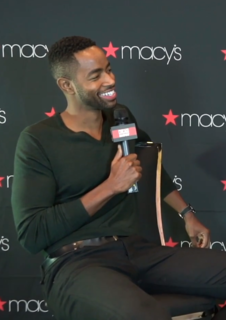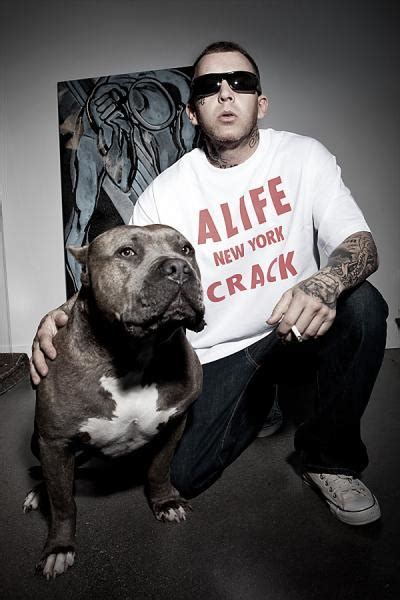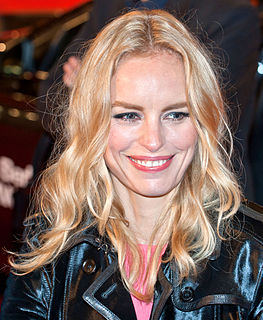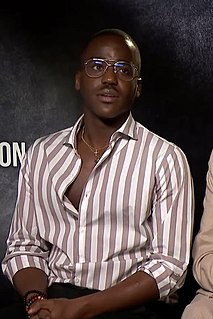A Quote by Jay Ellis
I read the script first to get the perspective on the whole story, the writing, and how the character I'm auditioning for is talked about by other people or relates to other people; from there, I go into the sides.
Related Quotes
When I am writing I don't set a certain number of pages. I do know that the further into a script I get the faster it goes. As soon as you start making decisions you start cutting off all of the other possibilities of things that could happen. So with every decision that you make you are removing a whole bunch of other possibilities of where that story can go or what that character can do. So when I get maybe 2/3's of the way through I can see very clearly where it is going to go.
I do get stressed at times, but I love what I do as an actor. This is the part that I don't like. I don't actually like talking about - I wish I could just go and get on with my job, because I love getting a script, breaking it down, working with other people, bonding with other people, fighting with other people, and out of those arguments, creating something that nobody expected and seeing it all come together. Telling a story, having an impact on people's lives, moving them and making them laugh.
I talked a lot early on in my career about intersectionality and how racism and classism and sexism and homophobia and capitalism are all connected with each other, and they're these crazy systems that are feeding on each other and are also damaging. I can't even go into the whole spectrum of it. But I feel like kids today are so much more savvy about that conversation. And I'm so thrilled when I get to meet younger people who are doing that so much better than I did.
I had to audition for Fandango. When I read the script, the role that was interesting - so everyone thought - was the role that Costner played. He was the cool guy. And I read the script, and my representation at the time said, "That's the role you should read for." And I was like, "Really? How about I read for this other role." And they went, "Well, you're not going to get that role."
I know a lot of people connect with my story. Every night that I do shows, I get emails and texts and tweets about how my life story has helped change other people's lives. With my sobriety and what I went through. I don't do a whole bunch of songs, that from start to end talk about one particular thing. That's a missing puzzle.
We really have a close friendship with Christian Petzold, which means we can be more frank and open towards each other, always with total respect. But, we push each other a bit further and further always, and we're always still curious about each other. And when he talks about a story he's thinking of doing, then the whole process is so special because I'm involved in a very early stage and I have the feeling I can, and not only, influence anything about my character, but about the whole story that my character's in.
I went to drama school so I had quite a regimented classical training, regimented process of analyzing a script. I'll go through the whole script and highlight everything my character says about me, and in another color I'll highlight what other characters say about me, and I'll highlight all the things I say about other characters.
I read the story and reread the story, but I still could not find the universality that the little Irishman had spoken of. All I saw in the story was some Irishmen meeting in a room and talking politics. What had that to do with America, especially with my people? It was not until years later that I saw what he meant ... I began to listen, to listen closely to how they talked about their heroes, to how they talked about the dead and how great the dead had once been. I heard it everywhere.
I made a conscious decision when I was writing that book to depict in real time how I treated it, and how I thought about it, and how I portrayed it to other people, because I wanted the story to be one of change from that to a more honest appraisal, a more accepting appraisal of myself and other people in that world.
To reconcile conflicting parties, we must have the ability to understand the suffering of both sides. If we take sides, it is impossible to do the work of reconciliation. And humans want to take sides. That is why the situation gets worse and worse. Are there people who are still available to both sides? They need not do much. They need do only one thing: Go to one side and tell all about the suffering endured by the other side, and go to the other side and tell all about the suffering endured by this side. This is our chance for peace. But how many of us are able to do that?
You could probably go all the way back to the first books. I bet people said 'why should you read when you could talk to other people?' The point of reading is that you get to deeply immerse yourself in a person's perspective. Right? Same thing with newspapers or phones or TVs. Soon it will be VR, I bet.



































